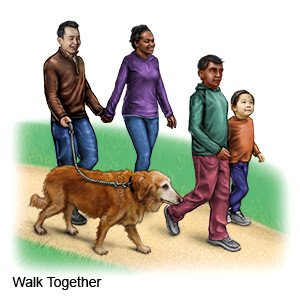Acute Abdominal Pain in Children
Medically reviewed by Drugs.com. Last updated on Aug 4, 2025.
AMBULATORY CARE:
Acute abdominal pain
usually starts suddenly and gets worse quickly.
 |
Seek care immediately if:
- Your child's bowel movement has blood in it, or looks like black tar.
- Your child is bleeding from his or her rectum.
- Your child cannot stop vomiting, or vomits blood.
- Your child's abdomen is larger than usual, very painful, and hard.
- Your child has severe pain in his or her abdomen.
- Your child feels weak, dizzy, or faint.
- Your child stops passing gas and having bowel movements.
Call your child's doctor if:
- Your child has a fever.
- Your child has new symptoms.
- Your child's symptoms do not get better with treatment.
- You have questions or concerns about your child's condition or care.
Related medications
Treatment
depends on the cause of your child's abdominal pain:
- Medicines may be given to decrease pain, treat a bacterial infection, or manage your child's symptoms. Do not give aspirin to children younger than 18 years. Your child could develop Reye syndrome if he or she takes aspirin. Reye syndrome can cause life-threatening brain and liver damage.
- Surgery may be needed to treat a serious cause of abdominal pain. Examples include surgery to treat appendicitis or a blockage in your child's bowels.
Help manage your child's abdominal pain:
- Take your child's temperature every 4 hours, or as directed. A fever may be a sign of a condition that needs to be treated.
- Have your child rest until he or she feels better. He or she may need to take more naps during the day than usual. Do not let your child play with other children if he or she has a contagious illness, such as the flu.
- Give your child an oral rehydration solution (ORS), as directed. ORS is liquid that contains water, salts, and sugar to help prevent dehydration. Ask what kind of ORS to use and how much to give your child.
- Ask when your older child can eat solid foods. You may be told not to feed your child solid foods for 24 hours.
- Apply heat on your child's abdomen to help with pain or muscle spasms. You can apply heat with an electric heating pad set on low, a hot water bottle, or a warm compress. Heat should be applied for about 20 to 30 minutes or as long and as often as directed. Always put a cloth between your child's skin and the heat pack to prevent burns.
- Keep track of your child's abdominal pain. This may help your healthcare provider learn what is causing your child's pain. Include when the pain happens and how long it lasts. Describe what your child was doing when the pain started. Also describe anything your child says about how the pain feels. Include other symptoms your child has with abdominal pain. Bring the information to your child's follow-up visits.
Help your child prevent acute abdominal pain:
- Make changes to the foods you give to your child, if needed. Do not give foods that cause abdominal pain or other symptoms. Have your child eat small meals more often. The following changes may also help:
- Give your child more fiber if he or she is constipated. High-fiber foods include fruits, vegetables, whole-grain foods, and legumes such as pinto beans.

- Do not give your child foods that cause gas. Examples include broccoli, cabbage, beans, and carbonated drinks.
- Do not give your child foods or drinks that contain sorbitol or fructose if he or she has diarrhea or bloating. Some examples are fruit juices, candy, jelly, and sugar-free gum.
- Do not give your child high-fat foods. Examples include fried foods, cheeseburgers, hot dogs, and desserts.
- Give your child more fiber if he or she is constipated. High-fiber foods include fruits, vegetables, whole-grain foods, and legumes such as pinto beans.
- Make changes to the liquids you give your child, if needed. Do not give liquids that cause pain or make it worse, such as orange juice. Have your child drink more liquids to prevent dehydration from diarrhea or vomiting. Ask your child's healthcare provider how much liquid to give each day and which liquids are best for your child.
- Help your child manage stress. Stress may cause abdominal pain. Your child's healthcare provider may recommend relaxation techniques and deep breathing exercises to help decrease stress. The provider may recommend your child talk to someone about stress or anxiety, such as a counselor or a friend. Help your child get plenty of sleep and physical activity.

Follow up with your child's doctor as directed:
Write down your questions so you remember to ask them during your visits.
© Copyright Merative 2025 Information is for End User's use only and may not be sold, redistributed or otherwise used for commercial purposes.
The above information is an educational aid only. It is not intended as medical advice for individual conditions or treatments. Talk to your doctor, nurse or pharmacist before following any medical regimen to see if it is safe and effective for you.
Further information
Always consult your healthcare provider to ensure the information displayed on this page applies to your personal circumstances.
